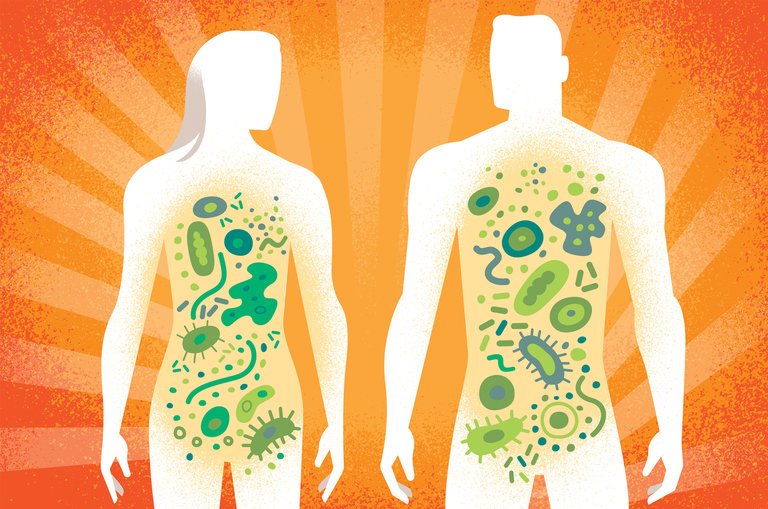NO… Unless
I’m going to answer this question right away. It is NOT wise, at least 99% of the time, to replicate another cultures or populations diet unless you were born in or living in that culture or population. This is due to the fact that all of our guts (microbiotas) are unique and are determined by our surrounding environment, the foods our ancestors consumed, the foods we consume today, geographical location (specifically how close we live to the equator), and numerous other factors.1,2
But… Borrowing is Okay
This means that there is no one diet for everyone and that what foods the Hadza tribe (an African tribe) consume, that makes them healthy, are not the same foods you should consume to achieve your optimal health. But, while we shouldn’t try to replicate another culture’s diet, we can still borrow some of the principles from these healthier cultures such as eating whole foods (not processed), creating an environment that supports healthy bacteria, and vastly altering our lifestyles by getting outside back into nature.
What Does a Healthy Microbiota (Gut) Look Like?
There is adequate research establishing that the closer to the equator a culture/population is, the higher in carbohydrates and lower in protein and fat their diet tends to be.3 This is important because as researchers have been attempting to determine what exactly a healthy microbiota looks like, they’ve studied many non-westernized groups, such as the Hadza an African hunter-gather tribe.4
A Problem to Consider
While we have learned much from cultures such as these, there is one particular problem. Most of the groups that have been studied live in equatorial regions (closer to the equator). This is a problem because differences in climate mean available local foods differ, therefore diet differs as well. Take, for example, if you are of European descent you will probably not do well with the same diet as those of Central African descent. Why? Because Europeans, in general, have eaten relatively lower carbohydrates throughout their history, while Africans have eaten relatively more carbohydrates.
More or Fewer Carbohydrates
This boils down to the important concept that different cultures guts have adapted to their environment and require different levels of carbohydrate intake. The “A to Z Weight Loss Study,”5 conducted by Dr. Christopher Gardner from Stanford. This study compared popular diets that range from high fat/low carb through high carb/low fat. Gardner’s work showed that the most improvement in overall cardiovascular risk profiles, blood sugar, and weight occurred on the low-carb diet.
It Depends… On Your Gut
Remember that low-carb diets don’t feed your gut bacteria to the extent of a higher-carb diet. What this study hints at is that it is more important to eat the appropriate amount of carbohydrates, for your gut, than it is to feed your gut bacteria. This leads us to an important principle: eating to control blood sugar is more important than eating to feed gut bacteria. This is likely since controlling blood sugar is also good for your small intestines, which in my opinion and others is the key player when it comes to digestive health.
Again, All of Our Guts are Unique
Although, looking back at Gardner’s “A-Z Weight Loss study.”5 It’s important to point out that while the lower-carb diet seemed to work best, there were some people (subjects) that responded well to the higher-carb diets. This was interesting to Gardner and he wanted to know why some did better eating more carbohydrates and some didn’t. After analyzing his results further, he discovered two things. One, those who were more prone to diabetes, those who were most insulin resistant (not insulin sensitive) seemed to only respond to the lower-carb diet. Two, those who were the most insulin-sensitive (not insulin resistant) appeared to be able to lose weight on any diet, high or low carb. Other studies have replicated and supported these findings.6 This brings us to establishing a point, that you should keep in mind, not everyone has to follow one diet, nor should everyone follow the same diet!
- https://www.ncbi.nlm.nih.gov/pmc/articles/PMC4303825/
- https://www.ncbi.nlm.nih.gov/pmc/articles/PMC4848870/
- https://watermark.silverchair.com/940.pdf
- https://www.nature.com/articles/ncomms4654
- https://jamanetwork.com/journals/jama/fullarticle/205916
- https://pdfs.semanticscholar.org/d37d/215f91c12d71575a1c0bf761637b7e898c49.pdf

